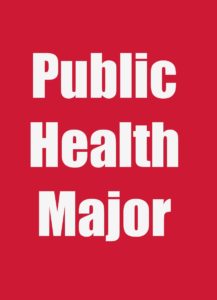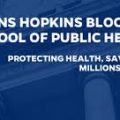
What is a Public Health Major
A Public Health major is an academic discipline to which an undergraduate student formally commits while in college or university. A student who successfully completes all courses under Public Health qualifies for an undergraduate degree in public health. A Public Health Majors are usually administered by select faculty in an academic department and most public health colleges offers the undergraduate Bachelor of Arts (BA) in public health , the Bachelor of Science (BS) in public health or both. See What Can You Do With A Public Health Major
Both the Bachelor of Arts and the Bachelor of Science (BS) degrees in public health provide you with a basic understanding of the five core public health knowledge areas which are:
-Biostatistics
-Social and behavioral sciences
-Epidemiology
-Health policy and management
– Occupational and environmental health sciences.
Is Public Health A Good Major?
A public health major is an excellent choice. There may be no better example of public health in action than the coronavirus crisis. In his recent statement at the opening of the European Public Health Week, WHO Regional Director for Europe Dr. Hans Henri P. Kluge said, “As COVID-19 has swept through our countries and communities, never before has the importance of public health been so prominent in the collective consciousness, and never before has the demand for our expertise been so insistent.”
While many public health workers, such as laboratorians, behavioral health professionals, environmental health experts, and biostaticians, are on the front lines of the fight against coronavirus, others work behind the scenes. Regardless, their work has a profound impact on understanding the disease and its spread. For example, public health measures such as school closures and social distancing have been linked with differences in the extent to which the virus has spread.
Public health experts continue to look at what other factors will come into play, such as seasonality. As the seasons change — both literally and figuratively — the pivotal role public health will continue to play cannot be overstated. A study published in the Canadian Medical Association Journal insists, “Only public health interventions were consistently associated with reduced epidemic growth, and the greater the number of co-occurring public health interventions, the larger the reduction in growth.”
Public health graduates have numerous career options depending on their educational attainment, experience, and specialty. They take careers with the government, state and community public health agencies, consulting firms, research organizations, universities, hospitals, and nonprofits. They may work for international or overseas health organizations, counseling centers, nutritional education organizations, or large industrial firms. There are also opportunities to coordinate services with law enforcement officers or first-responders to facilitate emergency or disaster planning and policies.




